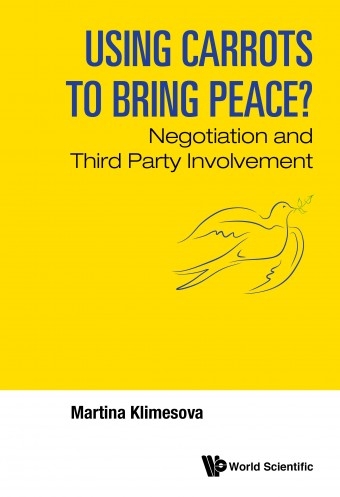Using Carrots to Bring Peace? Negotiation and Third Party Involvement

Martina Klimes
How can peace be brokered between warring sides in conflicts over self-determination and what roles do external third parties play? This book is the first of its kind to thoroughly explore the effectiveness of aid conditionality and other external tools that third parties — from states and regional organizations to NGOs — bring to the table in peace negotiations. Surveying the existing academic debate on incentives and peace conditionality, the author first identifies the gaps between theory and the needs of third party mediators and facilitators. Analysing in depth the negotiation processes in Sri Lanka (Eelam), Indonesia (Aceh), and the Philippines (Mindanao) as case studies, policy tools likely to be most effective are then identified and policy recommendations developed. This book is an invaluable resource for students, scholars, and practitioners alike.
Related Publications
-
Navigating the Indo-Pacific: How Australia and the EU Can Partner for Peace, Stability, and Prosperity
To navigate the choppy waters of the Indo-Pacific, the EU and Australia must be on the same wavelength regarding shared interests in rules, values, and an open and liberal economic […]
-
To What Extent is China a ‘Security Threat’?
The current international order, led by the United States, is undergoing phenomenal political, economic, and security changes that will decide whether the order will continue as it is, or a […]
-
Maldives Walking Tight Rope between India and China
Like all the South Asian small states, the Maldives has been subjected to great power politics. There are five principles of Maldives’ foreign policy (mostly reciprocating with India’s ‘Panchsheel’) and […]
-
Positive Paranoia: Chinese Interpretations of Indo-Pacific Geopolitics
This Focus Asia paper seeks to interpret Chinese narratives on Indo-Pacific geopolitics by reviewing Chinese state media and scholarly opinions on Indo-Pacific geopolitics. For this purpose, the paper also examines […]
-
Not Drawing a Parallel. Ukraine and Taiwan: An Indian Perspective
Russia’s war against Ukraine has not only had economic, diplomatic, and geopolitical repercussions, but also exaggerated the fear of accelerated conflicts in the Indo-Pacific, a region with several unresolved conflicts […]




